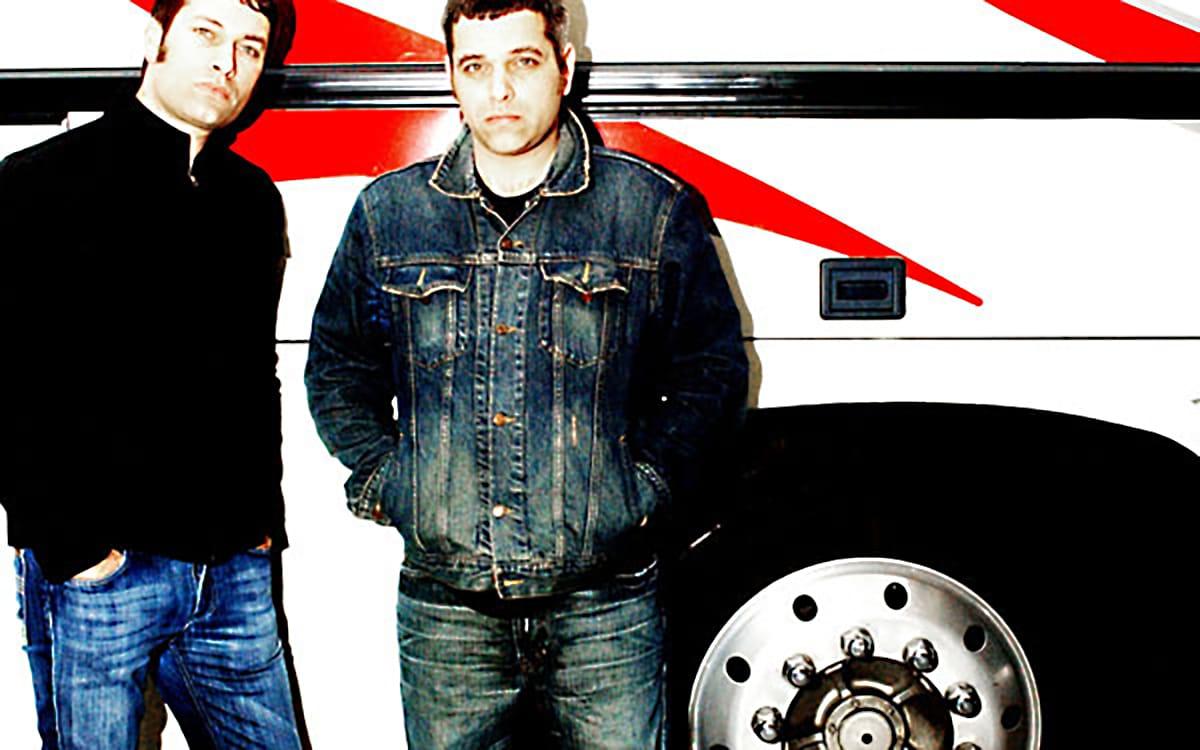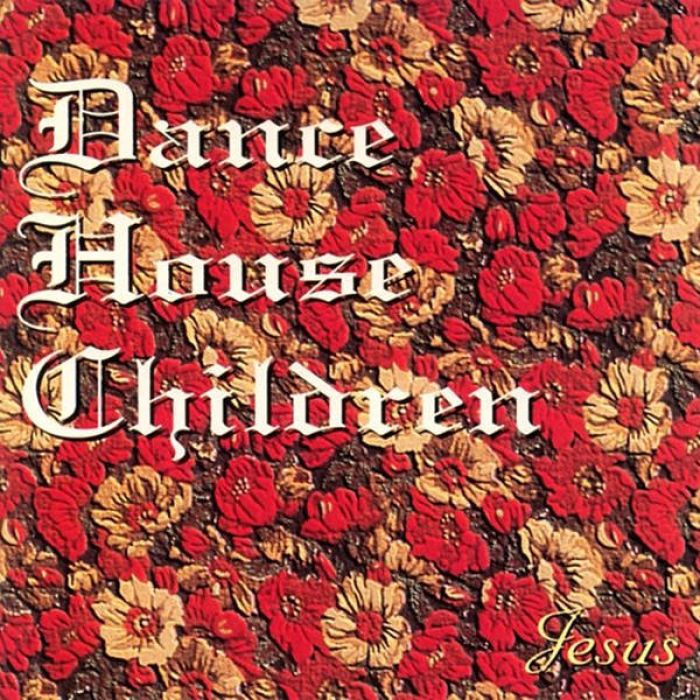Grace Notes: Ronnie & Jason Martin, the Hardest Working Men in Christian Music

Grace Notes is a weekly exploration by Jason Morehead of signs of common grace in the music world. We hope to alert you to wonderful music, some of which will be spiritual in nature but all of which will be unique and worthy of your attention. Each week we will share brief reviews of albums worthy of your attention and maybe a video or two.
Back in March, Ronnie and Jason Martin announced Kickstarter projects to record and produce new albums for their Joy Electric and Starflyer 59 projects (respectively). Between the two of them, the brothers have released 25 albums in the last two decades, not to mention numerous EPs, singles, and compilations. In the process, they’ve created two of the most singular and recognizable aesthetics in independent music, Christian or otherwise. And though they haven’t achieved widespread success, they have both developed very devoted followings — as evidenced by the fact that both Kickstarter projects were fully funded in a matter of hours.
Dance House Children

The Martins first came into the spotlight as Dance House Children, and as their band name suggests, they were influenced by the rave-friendly sounds of groups like 808 State and The Shamen. They released two albums — Songs & Stories and Jesus — as a duo and one album — Rainbow Rider: Beautiful Dazzling Music No. 1 — with Ronnie working solo. Jesus holds the distinction of being the first Christian techno/dance album I ever heard, and while its juxtaposition of dance beats and programming with lyrics extolling the virtues of family, stay-at-home moms, and other “traditional” themes seemed odd on paper, it was quirkily nostalgic and strangely affecting (especially on songs like “Once Upon Your Lips” and “Wisteria Time”). What’s more, Dance House Children also laid the foundation for Ronnie’s current, and most well-known project: Joy Electric.

Joy Electric

Joy Electric has found Ronnie consistently embracing a “less is more” aesthetic. Each Joy Electric release has found him refining and purifying his sound, eventually to the point of settling on using a single analog synthesizer per album, such as a Roland System 100 on The White Songbook or a Moog Voyager on The Ministry of Archers. Oftentimes described/derided as “video game music,” his albums do contain plenty of bleeps and bloops reminiscent of the Nintendo games of yore. But those bleeps and bloops are merely dressing for some truly catchy melodies and hooks, revealing Martin to be a consummate pop songwriter.
More interesting — and more divisive, perhaps — are Martin’s lyrics and themes. Often singing in a fey, child-like voice and a faux-British accent, Martin references candy, flowers, ghosts, fairies, family and marriage, depression, and antediluvian history — along with very obvious references to his Christian faith. Indeed, song titles like “Drum Machine Joy,” “Lily Pad the Forest Our Home,” “Keep Him in Your Thoughts,” “The Harvestry of Ghosts,” “Children of the Lord,” “St. Glockenspiel’s Science Faire,” and “The Ushering In of the Magical Era” might be as good as anything at giving someone an idea of his unique sensibilities.

Starflyer 59
After recording Dance House Children’s Jesus, Jason broke off to form his own band, Starflyer 59. Their debut album, 1994’s Silver, eschewed the Children’s electronic sound for a lush, guitar-heavy one in-line with “shoegazer” acts like My Bloody Valentine, Swervedriver, and Catherine Wheel. Personally, this album was a huge deal for me. I had never heard anything like it, much less in Christian circles, and I’m surprised I didn’t wear out my cassette copy during the summer of ’94.
It would be mistaken and lazy to still consider Starflyer 59 a “shoegazer” band, though. Like his brother Ronnie, Jason possesses a certain musical restlessness, and he’s incorporated different genres and styles — e.g., lounge, surf, 1970’s metal and stadium rock, orchestral pop — into each new album. Even so, it’s impossible to mistake a Starflyer 59 album for anyone else’s — again, like his brother.
Musical variety aside, here’s the most interesting thing about Starflyer 59’s music: its workman-like quality. There’s nothing particularly flashy or groundbreaking about Starflyer 59’s albums. Rather, they’re simply solid, well-crafted pieces of music that never go out of style. And while early albums found Jason moping after girls — Gold being a perfect example — later albums like Leave Here a Stranger and Dial M have found him ruminating, in that inimitably hushed voice, on aging and death, raising a family, and the struggles of being in a band.

Other Projects
Joy Electric and Starflyer 59 may be the brothers’ primary musical outlets, but they aren’t the only ones. Ronnie has recorded music as Sir Ronald of Orange and The Foxglove Hunt (with former Fine China frontman Rob Withem), to name a few side projects. Jason has played in Bon Voyage (with his wife Julie), Pony Express (with Velvet Blue Music owner Jeff Cloud), and Neon Horse (with former Stavesacre frontman Mark Salomon). Both brothers have also worked behind the scenes with a number of artists: Ronnie once ran Plastiq Musiq, an electronic music label featuring House Of Wires, Norway, and Soviet, while Jason has produced releases for Upside Down Room and History Invades.
Finally, the brothers briefly reunited as the aptly titled Brothers Martin, releasing a self-titled album in 2007. The album could be a bit bi-polar in places: not all that shocking seeing as how the brothers had been developing their individual sounds for 15 years by then. But it also contained several excellent songs that gave longtime fans of the brothers (such as myself) exactly the sort of stellar songwriting that they were hoping for from a Joy Electric/Starflyer 59 collaboration.
This entry was originally published on Christ and Pop Culture on .